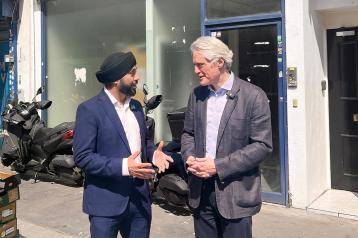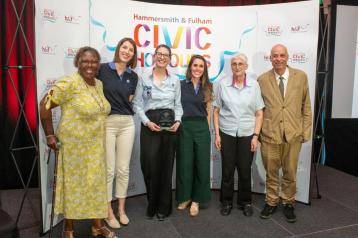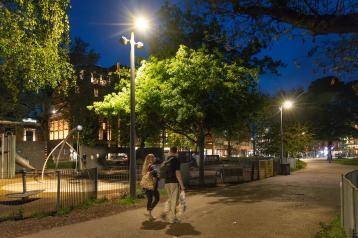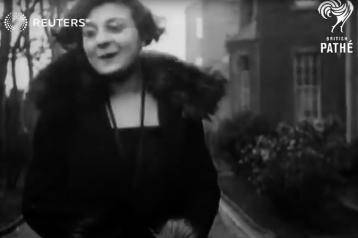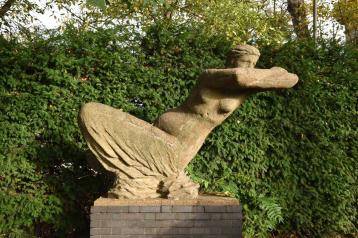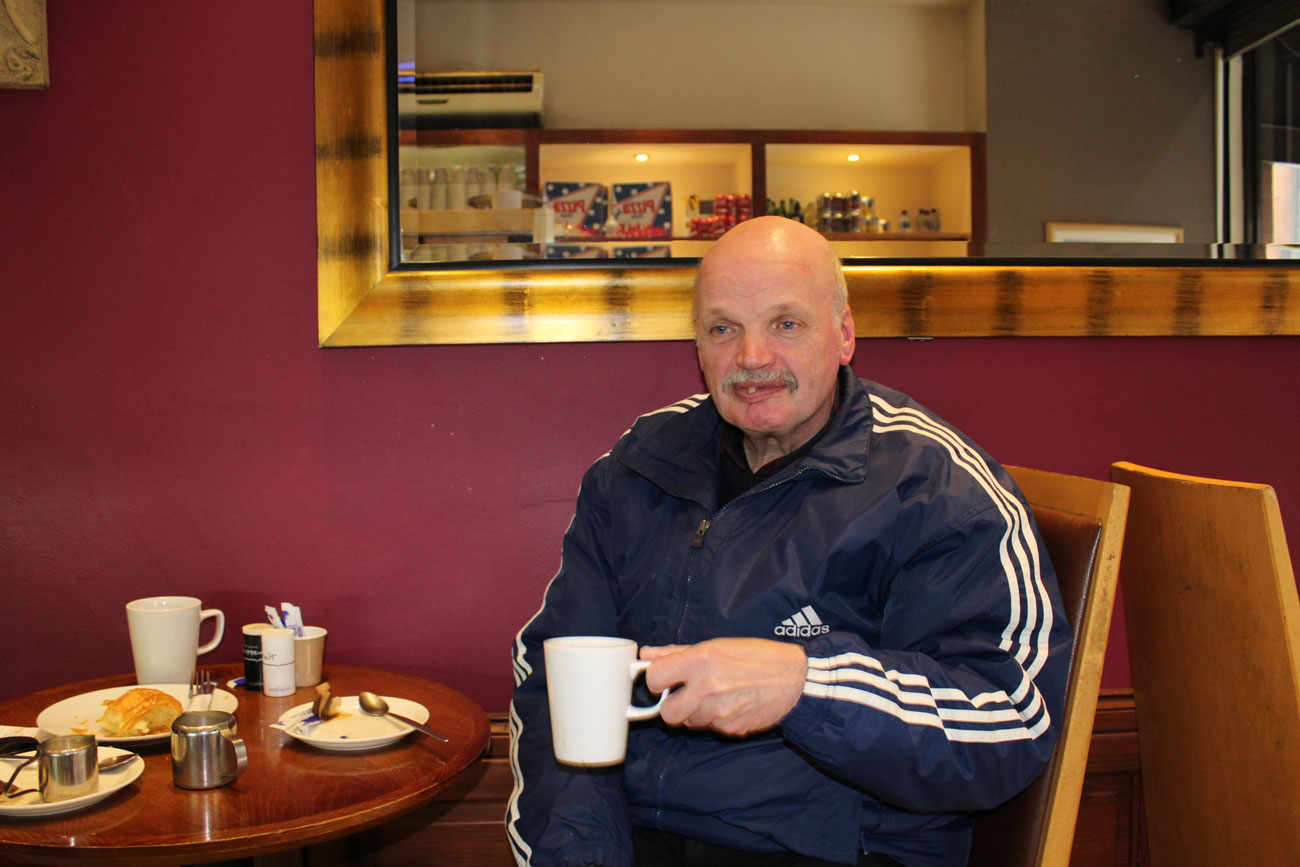
Michael Crick has previously accessed Glass Door drop-in centres, but is now living in his own flat in Hayes
Christmas is the time of year where volunteers and staff at Glass Door – London’s largest emergency winter night shelter – provide more than just a safe sleeping place and hot food for hundreds of men and women who would otherwise be cold and alone.
And this year, the charity has launched a campaign called ‘Shelter and Hope’ to raise that money and share some Christmas spirit with up to 100 homeless guests each night.
“Here our guests find a sense of community, a place where they can rebuild self-esteem and find trust,” said Steven Platts, chief operating officer of Glass Door. “If you are homeless, Christmas can be one of the most difficult times of the year for men and women who don’t have a home.”
Unlike most winter shelters, Glass Door – which partners with 14 churches across Hammersmith, Fulham, Kensington, Chelsea, Barnes and Putney – remains open through the entire festive period, at a cost of £11,128 over the week.
Over the course of the week, churches around west London will host homeless guests, with 200 volunteers decorating the shelters and cooking some 840 dinners to be shared around communal tables.
Each overnight stay costs less than £23, and includes a hot meal, a safe place to sleep for the night, and a good breakfast. This is paid for by donations from the local community, and Glass Door is appealing for more help from residents this Christmas.
Among those churches rotating as shelter venues in Hammersmith and Fulham are Askew Road Methodist Church, Fulham Baptist Church, and Holy Trinity Church in Brook Green.
Also throwing open their doors are Rivercourt Methodist Church, St Dionis in Parsons Green and St John’s in Walham Green.
Many of the homeless guests will also have meetings with caseworkers to help them find a way off the streets.
“Desperation and frustration are not unusual feelings for our guests to have, so the shelters and the community volunteers and staff create give them a bit of hope and stability over the holidays,” added Steven. “We help people who have nowhere else to go.”
On Christmas Day itself, homeless guests will be hosted at the Hall of Remembrance in Flood Street, Chelsea, and Our Lady of Victories, at Kensington High Street.
“There are a lot of people out there with nowhere to go and no one to celebrate Christmas with,” explained Steven. “Glass Door gives them a chance to be safe, warm, and have some sort of festive celebration, so the money donated is incredibly important.”
Meanwhile daytime drop-in centres in Kings Road and Fulham Broadway allow guests eat lunch, take showers, do laundry and get advice.
But Christmas is not the only time that Glass Door is there to support people in west London.
The night shelter runs for 22 weeks each year, from the first Monday in November through to early April.
Now in its 16th year, Glass Door gives access to showers, laundry, medical care, second-hand clothing, and advice from trained caseworkers.
Last year, caseworkers supported 900 people hoping to end their homelessness, and managed to help 100 into stable accommodation, and 120 into employment.
And as it is not government funded, there’s an open door policy, meaning no formal referral is needed to access the services, which are available for people of all faiths, or none.
“There is light at the end of the tunnel,” added Steven. “But we need people to donate so that tunnel stays open.”
Visit this link to donate to the Glass Door Shelter and Hope Christmas online campaign.
Case study: Michael Crick, age 65
Working hard and enjoying his job as a certified butcher in Shepherds Bush, being homeless never crossed Michael Crick’s mind.
He’d been born in Parsons Green and spent most of his adult life working in the borough, visiting his parents in East Anglia each Sunday.
“I loved every minute of my time as a butcher,” said the 65-year-old. “I got my college degree and became a certified butcher, and went all the way through to the final stage of managing.”
But when his mother became ill, Michael made the decision in his fifties to move closer to his parents. Just three months later, she passed away, followed by Michael’s father being diagnosed with cancer.
“I would work split shifts as a cleaner, so I could see him every day,” said Michael. “I took care of his bills and helped look after him. He was in a lot of pain.”
When his father died, John moved back to London. “It’s where I am from, and where I wanted to spend my remaining days,” he explained. “I had several job interviews, but it always went to someone else. I understand. I was almost a pensioner.”
He was at a loss for what to do next and ended up sleeping rough on and off for five years.
Life was far from easy, and Michael’s health deteriorated.
“I got beaten up twice,” he revealed. “One time, I was sleeping in Knightsbridge, and these three well-dressed guys beat me up. You’ve got these people who just don’t like homeless people. They think we’re all drug-users.”
But Michael started accessing Glass Door drop-in centres and things started to turn a corner.
“The drop-in centres, they’re a lifeline,” said Michael. “I collected post, took a shower. It was somewhere warm for a few hours.”
Eventually, a Glass Door caseworker gained Michael’s trust and convinced him to work with outreach workers in Hammersmith & Fulham.
He moved into his own flat in Hayes just before Christmas last year and things are looking up.
“Now, I’m right on top of my bills, I look after myself,” said Michael. “I get a flu jab once a year. I love cooking. I make myself a nice beef stew. That’s the thing about being a butcher, my mother always said I would never starve!
“My advice for others in a similar situation? Find somewhere safe, undercover to sleep. There are places to go to get a meal, get off your feet, and talk to someone. Take a shower. Get your washing done. If I had stayed on the street, I wouldn’t have survived. This place saved my life.”
